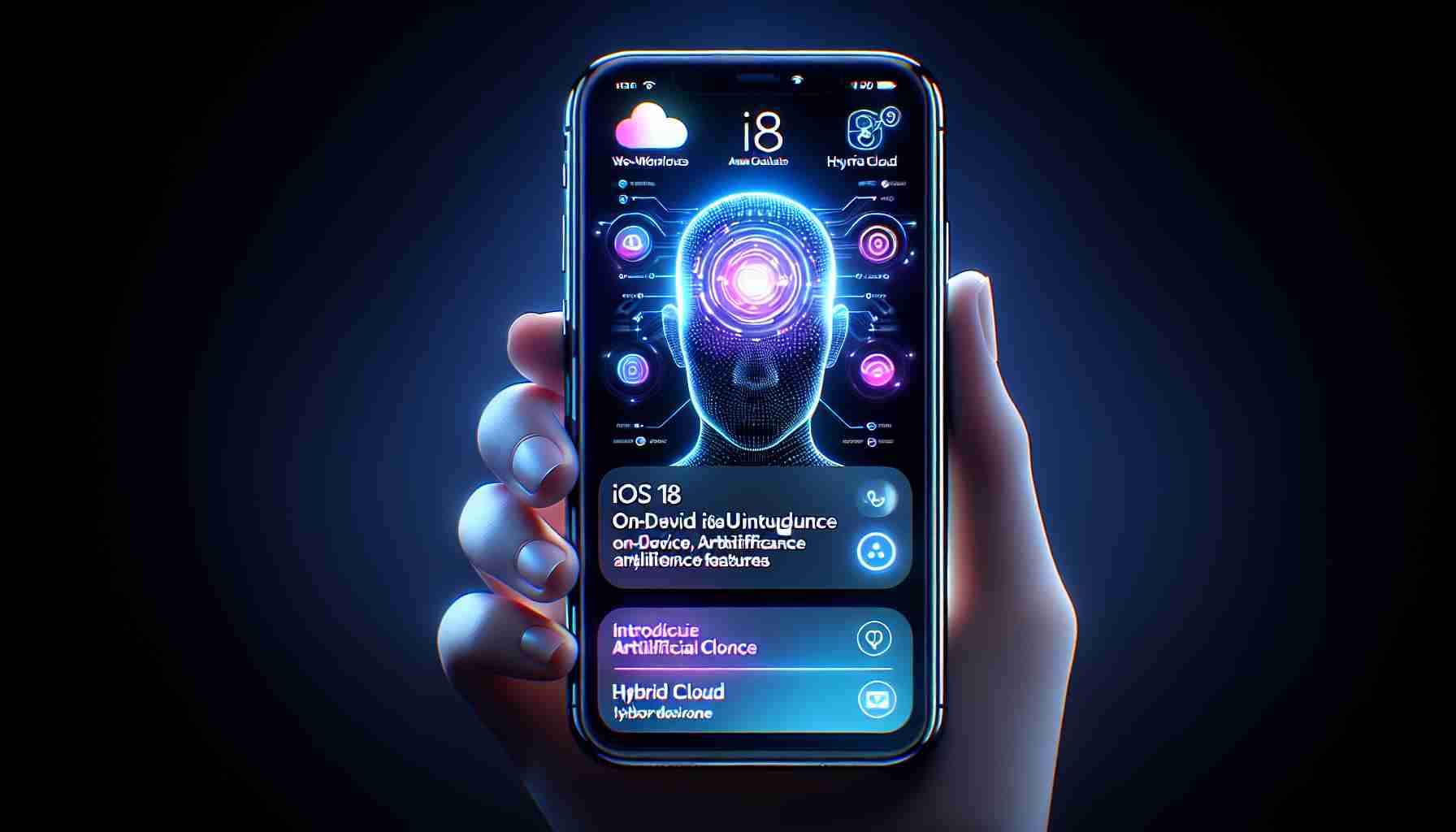Apple is gearing up for a significant software update with iOS 18, anticipated to be announced at the Worldwide Developers Conference (WWDC) in June. The update is expected to prominently feature advancements in artificial intelligence (AI) capabilities within Apple devices. Industry insiders speculate that the next generation of iPhones could harness ‘on-device AI’, empowering the smartphones to process most AI-driven features internally rather than relying solely on cloud-based services.
Unlike traditional AI functions that depend on external cloud resources, on-device AI is designed to operate directly within the hardware, streamlining performance and enhancing data security by reducing reliance on data transfers. This can lead to faster execution of AI services without compromising user privacy.
However, due to the absence of proprietary generative AI from Apple, the company may still leverage the cloud, especially for complex high-performance AI algorithms. Technologies like OpenAI’s ChatGPT illustrate the need for cloud interactions due to their vast language model capabilities. Apple may potentially integrate such external generative AI services into the iPhone, utilizing a ‘hybrid AI’ approach – similar to that adopted by Samsung Electronics in their Galaxy S24 series, which combines on-device and cloud-based AI.
While Apple has not yet developed its generative AI technology, the anticipated iOS 18 update is regarded as potentially one of the most substantial OS updates since the original iPhone’s release. The event may also see the introduction of an ‘AI App Store’, providing AI-driven applications, suggesting Apple’s commitment to evolving its suite of services through AI integration. The prospective AI features and applications are titillating for both consumers and industry experts alike, looking forward to Apple’s advancements in AI technology.
Market Trends: The incorporation of AI capabilities in smartphone operating systems is part of a larger trend of bringing AI and machine learning closer to the end-user, minimizing latency and addressing privacy concerns. Leading technology companies, including Google and Samsung, have been investing heavily in AI and machine learning to improve user experience and expand functionality. For example, Google has been integrating AI into its Android OS, while Samsung incorporated its own Bixby AI assistant into its smartphones. There is also a significant trend towards personalizing user experiences through predictive analytics and machine learning algorithms that adapt to individual usage patterns.
Forecasts: The mobile AI market is expected to continue its rapid growth. Market analysts predict an increase in demand for AI-capable devices, with a significant portion of that growth driven by advancements in voice assistants, camera AI enhancements, and on-device processing. As technology progresses, it is expected that AI will become increasingly central to the user experience, driving demand for more powerful hardware and innovative software solutions.
Key Challenges and Controversies: A major challenge with integrating advanced AI into mobile devices is maintaining user privacy and data security. As on-device AI reduces the need to send data to the cloud, it minimizes the exposure of private information. However, when data must be sent to the cloud for processing, such as with hybrid AI systems, ensuring secure data transfer becomes critical. Additionally, with the increasing capabilities of AI, ethical concerns arise about how AI decisions are made and the potential for AI to be used in manipulative or biased ways.
Advantages: The advantages of on-device AI include improved privacy, as less data needs to be transmitted to the cloud, reduced latency for real-time AI processing, and potentially improved battery life by cutting down on data transmission. This also allows for better performance in areas with poor internet connectivity.
Disadvantages: On-device AI might be limited by the processing power available on a mobile device compared to the essentially unlimited resources available in the cloud. Additionally, updating and improving AI models can be more challenging on-device, where updating software is less fluid than in a centralized cloud-based system.
Related links for further exploration on the topic include:
– Apple
– Google
– Samsung Electronics
It’s worth noting that this information reflects the state of the market and anticipated trends as of early 2023 and could evolve with new developments in technology and shifts in consumer preferences.
The source of the article is from the blog motopaddock.nl

